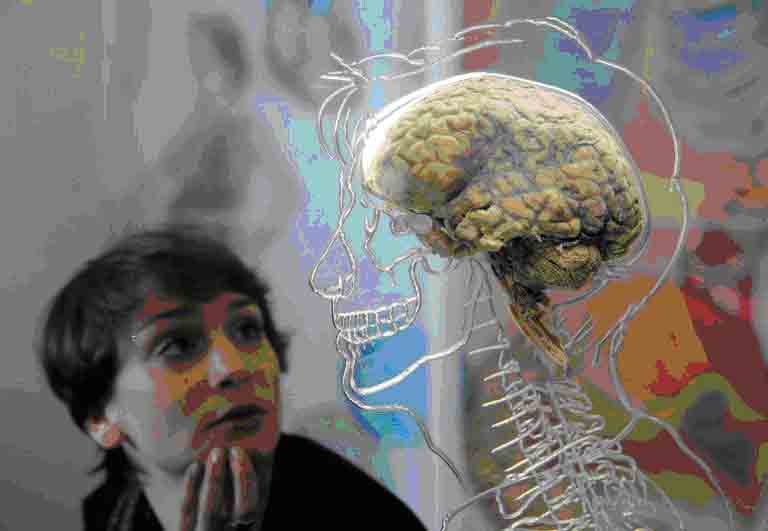
 SCIENTIFIC EDUCATION POINT A Concept for Mind Development & Mid Brain Activation |

 A Unit of RGVT, New Delhi [An ISO 9001:2008 Certified Organisation] |
|
|
|
|
|
|
|
|
|
|
|
|
|
How Big Is the Brain? By Kendra Cherry Updated January 19, 2016 The human brain is an amazing organ, capable of surprising feats of memory, susceptible to damage, and yet remarkably adaptable to change. Just how big is the brain? While the human brain has a structure similar to that of other mammals, what makes it so very different is its size in relation to body size. Compared to the size of our bodies, human beings have much larger brains than many other mammals. The Size of the Brain • In terms of weight, the average adult human brain weighs in at 1300 to 1400 grams, or around 3 pounds. • In terms of length, the average brain is around 15 centimeters long. • For comparison, a newborn human baby's brain weighs approximately 350 to 400 grams or three-quarters of a pound. • Men tend to have bigger brains than women. After taking overall body weight into account, men's brains tend to be approximately 100 grams larger than women's. • In women, parts of the frontal lobe and limbic cortex (areas associated with problem-solving and emotional regulation, tend to be bigger than those of men. • In men, the parietal cortex (associated with the perception of space) and amygdala (linked to social and sexual behavior) tend to be larger than those in women. • Neurons are the structures that serve as building blocks of the brain and nervous system. They transmit and carry information, allowing different parts of the brain to communicate with one another as well as allowing the brain to communicate with various parts of the body. Researchers estimate that there are around 100 billion neurons in the human brain. Does Brain Size Matter? Obviously, not all people have the same size brain. Some are larger, and some are smaller. You might find yourself wondering if brain size might be linked to characteristics such as disability or intelligence. Researchers have found that in some cases brain size can be linked to certain diseases or developmental conditions. For example, autistic children tend to have bigger brains (and earlier disproportionate brain growth) than non-autistic children. The hippocampus tends to be smaller in elderly adults suffering from Alzheimer's disease. This area of the brain is strongly associated with memory. What about intelligence? The answer to that question depends largely upon who you ask. According to one analysis of many studies that looked at this issue by Michael McDaniel of Virginia Commonwealth University, bigger brains were correlated with higher intelligence. Not all researchers necessarily agree with McDaniel's conclusions. Such studies also raise important questions about how we define and measure intelligence, whether we should account for relative body size when making such correlations, and what parts of the brain we should be looking at when making such determinations. It is also important to note that when looking at individual differences among people, brain size variations are relatively small. Other factors that may influence or play a pivotal role include the density of neurons inside the brain, social and cultural factors, and other structural differences inside the brain. References: Hoag, H. (2008, July 19). Sex on the brain. New Scientist. McDaniel, M. A. (2005). Big-brained people are smarter: A meta-analysis of the relationship between in vivo brain volume and intelligence. Intelligence, 33, 337-346. Park, A. (2012, April 16). Bigger brains and higher IQ linked with specific genetic variants. Time. Retrieved from http://healthland.time.com/2012/04/16/bigger-brain-and-higher-iq-linked-with-specific-genetic-variants/ Park, A. (2011, May 3). Brain size, early growth: Clues to Autism's causes. Time. Retrieved from http://healthland.time.com/2011/05/03/brain-size-early-growth-clues-to-autisms-causes/ Schoenemann, P. T. (2008). Brain size scaling and body composition in mammals. Brain, Behavior and Evolution. |
|
|
|
RGVT
|
Home
|
Determine
|
Branches
|
Que. Answer
|
IQEQSQ
|
Theory
Courses | Authorisation | About SEP | Contact Us |
|
|